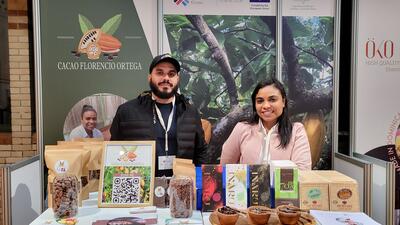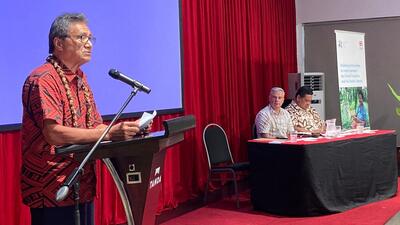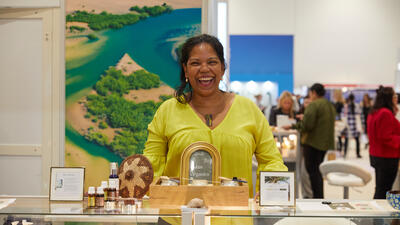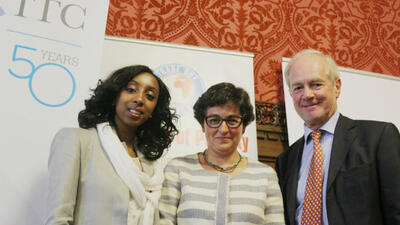Last day of WTO Ministerial: Positive developments yet no decision on how to proceed with global trade talks
The World Trade Organization (WTO) ended its ministerial meeting on Saturday 17 December without taking clear decisions on how to revive multilateral talks, focusing instead on welcoming Russia, Samoa and Montenegro as new members and securing a government-procurement accord that will help African women. ITC also tackled the topic of government procurement with its Inaugural Roundtable on Government Procurement on Sourcing from Women Vendors.
ITC’s Women and Trade Programme brought together Ministers and procurement experts on the sidelines of the WTO Ministerial conference to lay the groundwork for building the capacity for women business owners to win at least five percent of contract bids from government agencies.
‘We need a proactive process to let women understand what the opportunities are, work with them on ensuring that they meet standards required for procurement and to get them networked together,’ ITC Executive Director Patricia Francis said at the roundtable on government procurement.
The last day of the Eighth Ministerial Conference also saw the formal acceptance of Samoa and Montenegro into the WTO. ITC had worked with Samoa on its accession process for the past two years, assisting Samoa in preparation for membership by facilitating a dialogue between the private sector and government negotiators ensuring that the interests of the private sector are taken into account during the accession process.
Some Ministers highlighted during the closing session the positive aspects of the Ministerial Conference. ‘We have set a good example in these three days,’ said Nigerian Trade and Investment Minister Olusegun Aganga, chairman of the conference. ‘We have sent a strong collective message that the WTO is more than ever important to the world. We have seen constructive dialogue among ministers, which has improved the WTO's atmosphere.’
While there was a ‘meeting of minds’ during the ministerial, it's not enough to reach a global trade agreement, said WTO Director-General Pascal Lamy, who announced that he will not seek a third term as WTO director-general after his current term ends in mid-2013.
The conference underscored the need for the WTO to move the negotiating agenda forward to remain relevant and that such a move will be gradual, Lamy said. ‘We leave this ministerial, which was not a high-ambition ministerial, with a better sense of priorities for the next years. That's the sort of guidance we all needed,’ he said.
During the three-day conference, ministers discussed the need to keep markets open and resist protectionism, ‘particularly in this challenging economic environment,’ Aganga said. Cotton within the context of the Doha talks and global trade security were also discussed on the sidelines of the conference.
U.S. Trade Representative Ron Kirk and a European Union delegation led by Agriculture Commissioner Dacian Ciolos met separately with officials from Africa's four main cotton-producing nations, Benin, Burkina Faso, Chad and Mali, which together account for about 15 percent of global exports.










